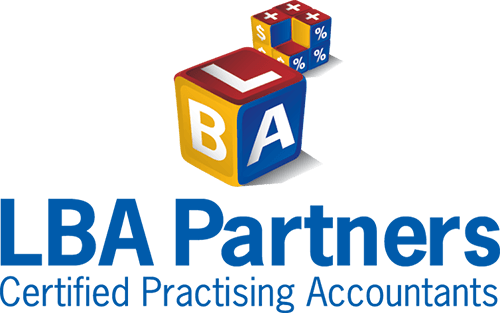P r a c t i c e U p d a t e
November 2012
ATO's Small Business Benchmarks
Editor: Clients may be aware that there are now in excess of 100 industries that have been 'benchmarked' by the ATO, with more on the way.
The benchmarks have been developed by the ATO to provide a guide on the range of figures it would normally expect a small, medium or large business in a particular industry to report, including the expected ratio of income vs. expenses.
Basically, the benchmarks are all about catching businesses that are in the cash economy and 'skimming' cash takings, paying 'cash-in-hand' wages, operating off-the-books and not recording or reporting all sales and purchases.
But in a recent document entitled 'Record keeping and cash transactions', the ATO points out that benchmarks are really all about record keeping.
What this means is that, if your business doesn't have the records to back up its reported income and expenses, and if it doesn't fit the benchmark profile, the ATO will amend the tax assessment to match the benchmark.
How do benchmarks work in practice?
Take, for example, a pizza takeaway shop. The ATO's benchmarks say that, for an average size pizza shop turning over between $150,000 and $600,000, its average cost of sales should be 40%.
So if a pizza shop was returning gross sales of $200,000 with cost of sales of $120,000 (60%)rather than the expected 40%, the ATO might be expected to contact the business and advise that it was outside the benchmarks.
If the business did not have the records to prove why it was outside the benchmarks, the ATO could be expected to apply them (e.g., by adjusting gross sales upwards to $300,000, so that the business's cost of sales of $120,000 would match the benchmark of 40% of sales).
Editor: Since benchmarking is all about either fitting within the benchmarks or having the record keeping systems to prove why your business sits outside the average, please call our office if you would like us to review your systems or discuss how benchmarking might apply to you.
ATO's new Contractor Payments data matching program
The ATO is requesting and collecting information in relation to payments made to approximately 75,000 contractors for the 2010 to 2013 income years.
The information they collect will be electronically matched with ATO data holdings to identify non-compliance with lodgment and reporting obligations under taxation law, and will enable the ATO to:
· identify and address the compliance behaviour of contractors who may not be correctly meeting their taxation obligations;
· be more strategic in its approach to determine appropriate educational and compliance strategies to encourage voluntary compliance for contractors.
Editor: The ATO has a 'decision tool' on their website to help taxpayers work out the status of employees/contractors.
GST can apply to "no-shows"
Editor: The following case is important for any businesses that collect money to "supply" something, but that supply doesn't actually take place. If they keep the money, they may still have a GST liability . . .
The High Court has held that Qantas was liable for GST in respect of payments it received for airfares that were non-refundable (or refundable but unclaimed), even if the customer failed to take the purchased flight, as the airline had still made "a supply for consideration".
Qantas contended that GST was not payable on the unused fares, because there was only one projected "taxable supply" to prospective passengers (namely the supply of air travel) which did not come to pass, and that therefore the GST which had been paid on them should be refunded by the ATO.
However, after considering the actual contractual terms regarding reservations of flights, the Court concluded that Qantas had at least supplied "a promise to use best endeavours to carry the passenger and baggage, having regard to the circumstances of the business operations of the airline. This was a "taxable supply" for which the consideration, being the fare, was received." Therefore, Qantas was liable for the GST.
Super contribution capping rules – Individuals aged 75 and over
From 1 July 2012, the super concessional contributions cap is $25,000 for everyone (i.e., that cap now relates to individuals of any age).
However, the ATO has advised that:
- superannuation funds can still only accept 'mandated employer contributions' for members aged 75 years and over;
- where 'mandated employer contributions' are made for people aged 75 or over, the concessional contributions cap will apply to them; and
- other than 'mandated employer contributions', people aged 75 years and older cannot contribute to super."
Editor: 'Mandated employer contributions' include super guarantee contributions (although these are not currently required for employees aged 70 or over, this age limit will be removed from 1 July 2013), and those required under an award.
Cars on the ATO's 'FBT radar'
This financial year, the ATO will be conducting a campaign to make sure employers who have purchased a car during the 2011 and/or 2012 fringe benefits tax (FBT) year are aware that they may have FBT obligations.
Editor: An FBT year runs from 1 April until 31 March.
Data has been obtained from various motor vehicle registering bodies to identify employers who have purchased a business registered vehicle but have not registered for FBT.
As a result, the ATO will be writing to about 5,000 employers who fall into this category, to tell them about car fringe benefits and what they need to do to comply with FBT obligations.
The ATO will particularly highlight that:
- if a car is garaged at home, it is taken to be available for private use;
- as a general rule, travel to and from work is private use of a vehicle; and
- there are only limited circumstances where an employee's private use of a car is exempt from FBT.
Changes to director obligations
Editor: The ATO has reminded company directors of recent changes to the law affecting their personal liability for certain company obligations.
On 29 June 2012, changes were made to the tax laws to reduce the scope for companies to engage in fraudulent 'phoenix activity' or to escape liabilities and payments of employee entitlements.
The changes:
- extend the director penalty regime and the estimates regime to apply to unpaid superannuation guarantee charge (SGC);
- ensure that directors cannot avoid director penalties by placing their company into administration or liquidation when PAYG withholding or SGC remains unpaid and unreported 3 months after the due date; and
- in some instances, make directors and their associates liable to 'PAYG withholding non-compliance tax' – which effectively reduces directors' PAYG credit entitlements where the company has failed to pay amounts withheld to the ATO.
Please Note: Many of the comments in this publication are general in nature and anyone intending to apply the information to practical circumstances should seek professional advice to independently verify their interpretation and the information's applicability to their particular circumstances.
Management Consulting
We have the know-how and experience to offer advice that helps you run your business more effectively.
Self-Managed Superannuation Funds
At LBA Partners we provide the professional advice you need to manage your own fund and greatly simplify the process for you.



